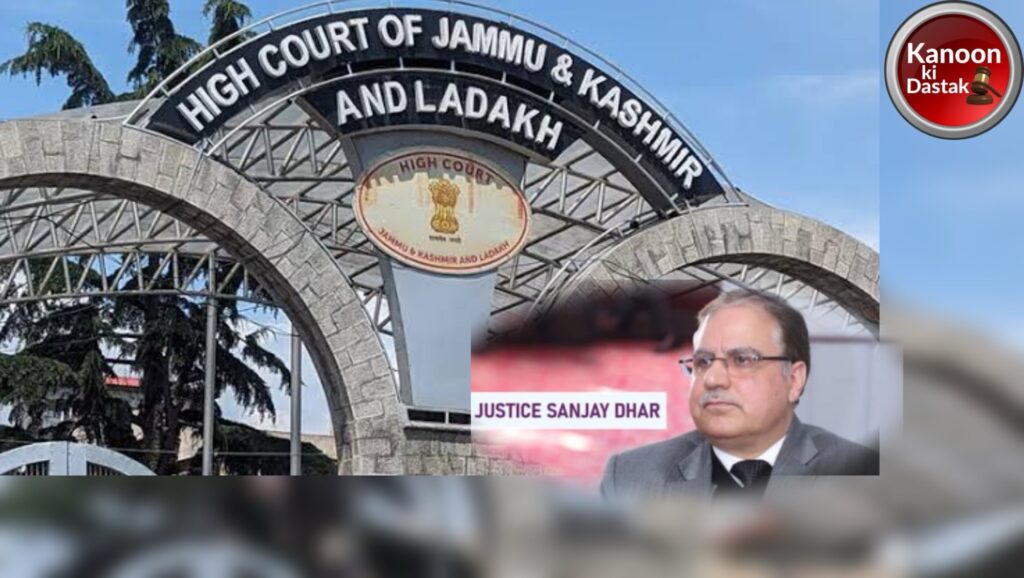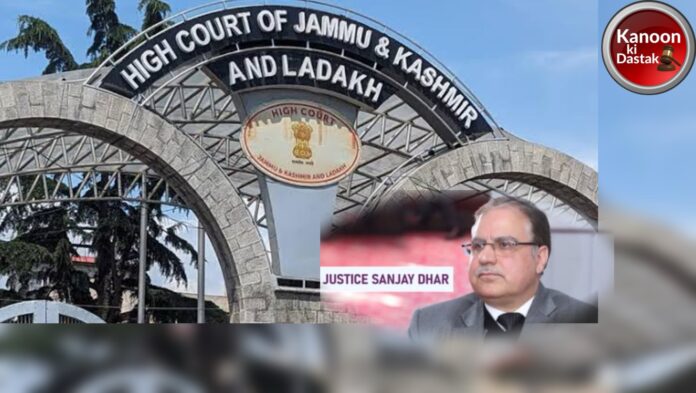
Kanoon Ki Dastak
Jammu, March 25, 2025 – The High Court of Jammu & Kashmir and Ladakh has ruled that Call Detail Records (CDR) alone are insufficient to convict an accused under Section 27-A of the Narcotic Drugs and Psychotropic Substances (NDPS) Act. The judgment came in a bail application filed by Yugraj Singh, who was accused of financing and trafficking narcotics.
Justice Sanjay Dhar, while granting bail to the petitioner, observed that mere contact between the accused and co-accused through CDR details, without any voice recordings or additional corroborative evidence, does not establish guilt under Section 27-A. The court noted that suspicion alone cannot substitute for legal proof.
The case originated from an FIR registered against Singh and others for their alleged involvement in a heroin smuggling network. While the prosecution claimed that Singh was the key supplier, the court found that apart from the CDR data and a disclosure statement recorded by police—both of which were deemed inadmissible—there was no concrete evidence linking him to illicit financing or trafficking.
Referring to previous Supreme Court rulings, including Tofan Singh v. State of Tamil Nadu, the court reiterated that confessional statements made before police officers are inadmissible. Additionally, the court highlighted that no recoveries were made based on Singh’s alleged disclosure, further weakening the prosecution’s case.
In granting bail, the court imposed strict conditions, including the surrender of the petitioner’s passport and a bar on contacting prosecution witnesses. It also emphasized that the order should not be interpreted as an opinion on the merits of the case.
This ruling sets a significant precedent, reinforcing the principle that circumstantial evidence like CDR logs must be supplemented by direct proof to sustain charges under stringent provisions of the NDPS Act.


